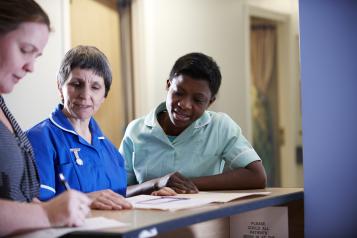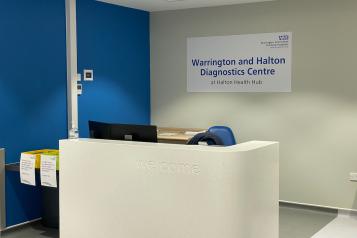Stay well this winter
Vulnerable and older people can find it particularly difficult to get out to the shops or to keep their house adequately heated during the cold weather, putting them at risk.

Why can cold weather be bad for your health?
The cold can weaken the immune system, increases blood pressure, thickens the blood and lowers body temperature, increasing risks of high blood pressure, heart attacks, strokes and chest infections. So it’s all the more important to ensure your home and the homes of people you look out for are the right temperature. This is especially important for the very young, people over 65 and those people with health conditions.
People can become more isolated during the colder months, due to the shorter day light hours and people staying out of the cold. This can be isolating, especially for people who live alone. Bugs can thrive in crowded, indoor, warm spaces, such as shops and public transport during the winter months. Meaning levels of common illnesses such as cold, flu, COVID and norovirus can rise.
Tips to keep well:
- Homes should be heated to at least 18C. Find tips and support for keeping your home warm
- Wearing several layers of thinner clothing also helps in the cold weather; this could keep you warmer than one thicker layer. Bed socks and thermal under clothes are helpful at night time.
- Hats, scarves and neck warmers are important when out and about in cold weather, as around 45% of body heat is lost in this area.
- Keep moving. Exercise is still really important for everyone's health in the cold weather. Make sure to wear sensible footwear, with a good grip. Try to move around at least once an hour, even when staying at home.
- Stay in touch with family, friends and your community.
- Leave going out until later in the morning or early afternoon, when pavements are less likely to be as slippy and light conditions are better.
- Get vaccinated. It's important to get your seasonal flu and COVID-19 vaccinations if you're at higher risk of getting seriously ill from these illnesses.
- Eat well. Food is a source of energy which helps to keep your body warm. Try to make sure you have hot meals and drinks regularly throughout the day.
- In severe weather stay safe at home, whenever you can.
- Keep enough supplies, such as food and medication, for a few days in case of severe weather.
- Look out for vulnerable family, friends and neighbours.
Seasonal affective disorder (SAD)
Seasonal affective disorder (SAD) is a type of depression that comes and goes in a seasonal pattern.
SAD is sometimes known as "winter depression" because the symptoms are usually more apparent and more severe during the winter. Lifestyle changes can help with this condition:
- getting as much natural sunlight as possible
- exercising regularly
- managing your stress levels
Read more on the symptoms and treatments for SAD.
Find information on looking after your mental health this winter.
Get advice if you feel unwell
You can get help and advice from:
- a pharmacy – pharmacists can give treatment advice for a range of minor illnesses and can tell you if you need to see a doctor
- your GP
- NHS 111 – go to 111.nhs.uk or call 111 if you have an urgent medical problem and you are not sure what to do
- Local Urgent Treatment Centres
The sooner you get advice, the sooner you're likely to get better.
If you're 65 or over, or in one of the other at-risk groups, it's important to get medical help as soon as you feel unwell.
In an emergency, go to A&E immediately or call 999.
Local cost of living support
Find help and information with the rising cost of living including;
- Household bills
- Food
- Housing
- Mental health
- Warm spaces
- Boosting your income
Support is also available for some people with health conditions;
- Free prescription pre payment certificate
- Financial support for essential medical equipment
- Free bus passes
- Help to quit smoking, with free Nicotine Replacement Therapy products (NRT)
Visit: Cost of Living Support
Contact the Public Health Team for more information;
0151 511 5200

